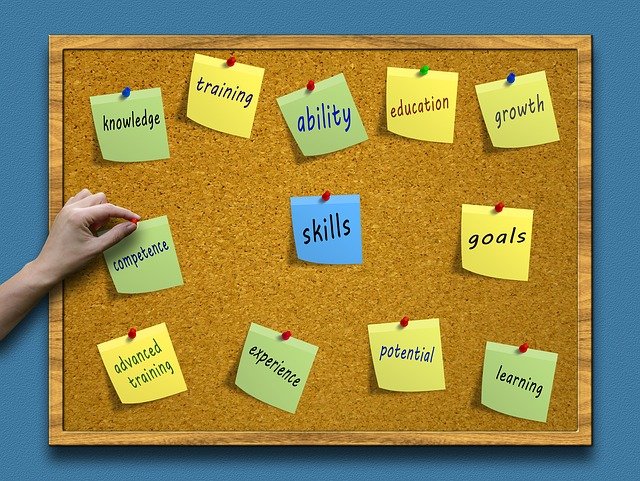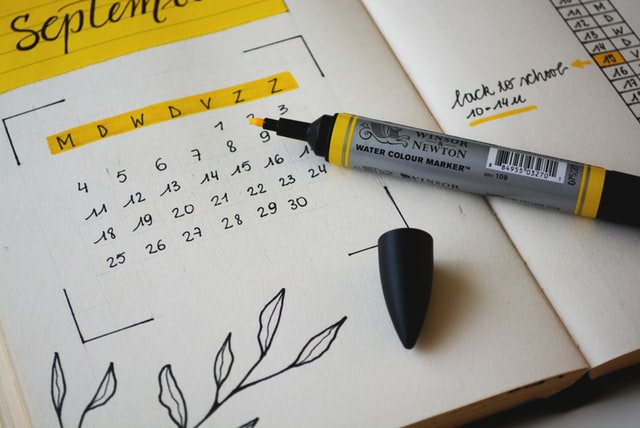Personal development is a lifelong essential in everyone’s life, but it doesn’t happen automatically. While reading self-help books or grabbing once-in-a-lifetime opportunities can help you improve yourself, productive personal development is done in conscious planned steps. Unfortunately, few people understand what a personal development plan is.
However, with a personal development plan, you not only prepare to work on all aspects of your life but are able to purposefully do it in an organized manner. This way, your dreams are alive daily in your mind, which serves as a great motivation to ensure consistent productivity.
What Is a Personal Development Plan?
A OnePoll survey on small- and medium-sized enterprises across the UK revealed that 66 percent of employees don’t have a personal development plan. Perhaps they are not aware of what such a plan is or could do for them.
A personal development plan is a blueprint for operating your life in a certain period of time. It encompasses all aspects of your life, including career, financial investments, philanthropic interests, and even relationships. The most commonly-used timeline is five years, since it’s enough to realize significant life changes. However, this can be altered according to one’s goals and preferences.

This self-improvement plan is like a plan for building your house. You see your ideal house in your mind but can’t build the foundation without articulating how many walls you want in your house and in what manner they will be built. You can’t just say you’ll figure it out along the way. You may realize later that you’re unintentionally building an open kitchen plan, or even worse, a bungalow, yet what was in your mind was a mansion.
Like a house construction plan, a personal development plan has details that help you accomplish your dreams, anticipate possible challenges, and create coping strategies in advance – plus, it includes the flexibility of reviewing and restrategizing.
You can use a personal development plan when trying to organize your life goals, changing trajectory in your career, and even when the circumstances, like lack of jobs in your area of study, force you to make a major shift.
Why Is a Personal Development Plan Important?

Even with a great vision and list of goals to accomplish, it can get blurry when striving to accomplish your goals. Challenges and distractions get in the way and may easily deviate you from your path. Adaptation to fast-changing paradigms may seem too difficult if you aren’t prepared psychologically. That’s why you need a personal development plan to help you in the following ways:
Define your dreams
Ideas in your head are merely brainwaves with potential. However, when you decide to make a personal development plan, you give yourself a chance to clearly identify those ideas, their relevance to you, and how they may relate to others as well. This is how you get empowered to start actng on your dreams and productively so.
Confidence boost in attainability of dreams

We all have dreams, but in truth, many of us think they are unattainable and hence, do nothing about them. However, when you create a plan to accomplish whatever goals you’ve been pondering, you realize that some steps can actually make the dream come true. With this knowledge, even if some people discourage you, you’ll still act in confidence.
Provides direction
If you know what you want to do and why, the next thing you’ll probably ask yourself is, “How do I get there?” There are many roads to distract you from the path you’re supposed to take, but when you know which direction to go, chances are, you’ll refrain from getting distracted. This motivates you to stay productive in your daily activities as you strive to achieve your goals through daily tasks.
Develops your sense of responsibility

Too many people depend on other people’s decisions to act and blame them when things don’t work out. However, a personal development plan helps you decide which decisions to make, and when they fail to bring a desirable outcome, you take responsibility and restrategize. This sense of responsibility promotes productivity, since you understand why you’re doing each task.
Enhances prioritization and focus
Prioritization is one of the most fundamental elements of productivity. Yet, it’s one of the main things people get wrong. If you don’t fully break down the big picture in your mind, it’ll be tough to know what comes first. However, if you use a personal development plan, chances are, you’ll handle things systematically in the order of importance.
Provides opportunity for self-reflection

Many people rarely reflect the flow of their lives. This is dangerous, since self-reflection provides them with space to breathe, evaluation of their progress, and the best way forward. In a personal development plan, there’s usually room to evaluate, celebrate victories, and restrategize.
Minimizes anxiety and promotes happiness
Without a plan, it’s easy to worry whether you’re going in the right direction or focusing on the right things. You’ll keep being anxious about the future, which compromises your ability to have happy emotions and, subsequently, stay productive. However, when you plan your personal development, you get rid of the self-imposed uncertainty that comes with lacking a plan. This makes you less anxious and increases your chances of experiencing happiness.
How to Create an Effective Personal Development Plan

Don’t rush this process since it’s the foundation of your future, however far it is. Yet, ensure that you give it a deadline because, as Parkinson’s Law confirms, a task takes as much time as you give it.
1. Visualize and outline your vision
To make an effective personal development plan, you need to start with the end goal in mind. What does your future look like in your mind? What are those end goals you feel so passionate about but wonder how to reach? Your future goals may overwhelm you and that’s okay. This is because there’s so much to do between now and then.
Get comfortable and visualize a normal day in three, five, ten – whatever number of years you see yourself accomplishing your dreams. Get into details and determine how you feel about your working days, income, relationships, and other things valuable to you. Be confident and set your success standards as you see them.
You have the big picture in your head, so put it on paper, screen, vision board – whatever’s comfortable to you. I prefer to use mind-mapping apps like FreeMind and MindMeister to outline my vision in the different sectors important to me. Below is an example of a mindmap I made in FreeMind.

2. Dissect and prioritize goals
A vision is a gigantic goal itself, but there are long- and short-term goals that lead you there. Work backward from your vision, hence breaking it down to long-term and then short-term milestones. For instance, if your long-term goal is quitting your job and making your side hustle a business, a short-term goal can be pitching 50 clients to get the first 10 high-paying clients.

Ensure you’re thorough and exhaust every idea that could help you reach the vision. While all may be helpful, some serve as the main goal and others in supportive roles. That’s where prioritization comes in. You have to arrange the goals in the form of what you need most and those you need least, which helps you adapt when the time to work on each goal arrives. You may have to lose some not-so-important ones.
3. Identify necessary strategies, tools, and resources
Which steps do you need to take to accomplish your goals? To make those steps doable in the most effective and efficient manner, what tools and resources do you need? Ask yourself these questions, and under the strategies, list the tools and resources you may need based on your research.

Note that these tools and resources can be human beings. If you’ll be consulting your family, friends, lecturer, employer, therapist, or any other person in some strategies you’ll be using, include those in the tools and resources section. This helps you refrain from asking the wrong people questions when in the heat of the moment.
4. Set deadlines
In reference to the Parkinson’s law mentioned earlier, if you don’t give yourself timelines to carry out these strategies:
- They’ll take longer than they should, or you may never act on them entirely.
- The execution of tasks may confuse and stress you since you’re operating randomly.
- You may succumb to distractions that confuse your direction.

On the other extreme, don’t become a deadline chaser. These timelines are meant to help you accomplish your goals at a reasonable timeline, but you can also alter them to ensure your life stays as balanced and productive as possible.
5. Acknowledge challenges and include coping strategies
We all know challenges and barriers are bound to exist in any goal-execution process. The challenge may be small or big, but the way you handle it is what matters. A plan helps you anticipate these challenges, not with a reaction, but the most effective response according to the information you’ve gathered so far.

Let’s say you’re planning to start a work-from-home business. Possible challenges can be procrastination, lack of work-home boundaries, and family distractions among other challenges. Acknowledge every possible challenge by writing it down. Each challenge has a solution that’s been successful to you or may prove to be successful – therefore, include it in the coping strategies section.
6. Create space for reviewing
A plan should be flexible. Some strategies, tools, and resources may work, while others may find better replacements. Some goals may stop making sense. Therefore, your plan should have space for evaluation and strategy.

While people brand plans as rigid, they become so only when you’re afraid of positive change and refuse to adapt. It’s natural for humans. So if you find yourself refraining from adapting, check out Why Is Change So Hard and How to Adapt. You can give yourself some space to breathe, find your place in the stages of change and shift your plan for the better. Your vision can be constant, but the approaches should be flexible.
Closing Thoughts
A personal development plan is a great daily catalyst for productivity. Every time you refer to it, it reminds you of your vision and the things you have to do to get there. While you may not accomplish all your goals according to the plan, don’t stress over it. Congratulate yourself for what you’ve done and move on with confidence to conquer more challenges. You’ll see great improvement over time.
Before you go, Go to File —> Make a Copy to save a version of this Personal Development Plan template and prepare to chase your dreams. Also, get to know the Best Planner Apps to Organize Your Work and Life and add those you need to your personal development tools.


